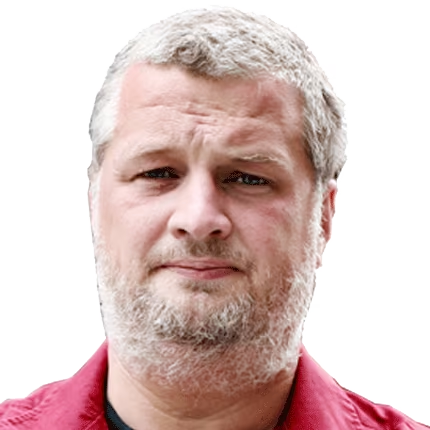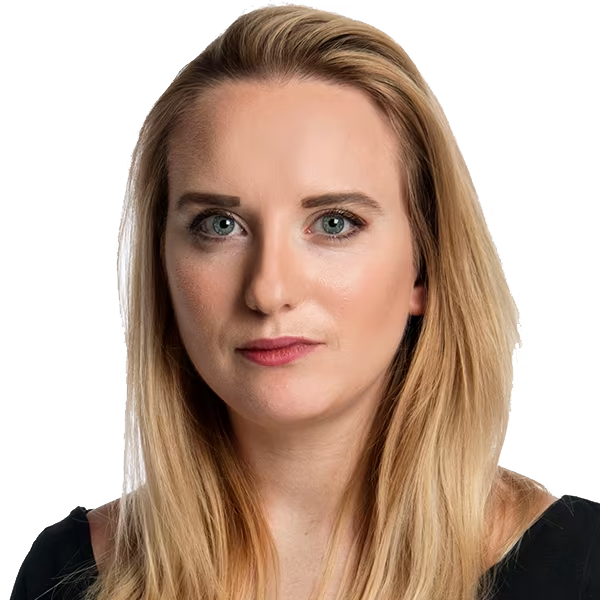Radar up the children to announce the verdict
The shot from the shooting range next door sets the mood as the eight- and nine-year-olds line up with their backs to the Gais farm wall.
Then the white-haired football leader begins to shoot down dream after dream.
”Number 9…”
There are 14 of them, boys between the ages of eight and nine who have just done their best to try to impress the Allsvenskan football club Gais. The dream they share is to take a place in one of the club’s prestigious academy teams.
Now they stand silent and clenched together with their backs against the club wall, waiting for the white-haired leader to deliver the verdict.
Those who are called up will move on to the next audition. Those who are not mentioned will be forced to go home with their tails between their legs.
Below the deck, which functions like a stage during the day, the parents stand silently.
“Light blue, you were really good. Pink, just as good, huh…”, the leader begins.
All children have been given a number to keep track of. That is their identity when Gais will now sort them into two groups. The desired ones – and the unwanted ones.
“Remember the numbers you have. So don’t ask me what number you had because I don’t know,” says the leader.
The shots from the nearby shooting range ring out in the air like an almost overt signal of the seriousness of the moment.
One of the parents regrets everything
“Light blue, those who are called to Wednesday’s training. It’s here at 17:45. It’s number 9, who was it? Good!”
One by one, the called-up children raise their hands. Whereupon the competing kids lean forward to quickly try to register who, after a total of 70 minutes of training, has been deemed good enough for a new chance.
Below the deck stands one of the parents, regretting everything.
– This selection is one of the worst things I could subject my son to.
When Sportbladet asks Gais for a comment on the club’s selection process, academy director Sebastian Lindström responds.
– We have a small group that practices with us every year, and after that we try to have a dialogue with the parents. The most important thing for me is that we have a long-term perspective and follow up with the player if they want to try again. That opportunity should be there, says Lindström and continues:
– The absolute hardest thing is when we need to say no. But we don’t have enough space.
How will it go when you are forced to do it?
– I wasn’t there this time, but according to the business plan, we always want to work in dialogue with parents and players.
Gais: “We always struggle with that”
Lindström describes challenges with the association sometimes being short on people, and that auditions can be conducted by non-profit leaders. This time, however, it is an employee from the office who is conducting the selection.
In this case, the children are lined up against a wall and given the news in front of everyone. How do you feel about that?
– It’s not where we want to be or the way we want to work.
How can this happen?
– It’s about follow-up and dialogue about how our business plan is anchored. We always struggle with that.
After the interview, we send the clips to Sebastian Lindström. He then returns via email, says that he has difficulty interpreting the entire situation based on the clips and reiterates that he advocates communication.
“I have reviewed this internally and also regarding the dates mentioned and on this occasion it was about there not being enough coaches on site (from our side) to conduct an inclusive training where everyone gets enough ball touches and repetitions and that everyone should be seen and heard when it clashed with other activities. Hence additional occasions that were called as you hear.”
However, in the notice 22 days before the trial training, the club wrote that the selection would take place in two stages.
“We have separate trial training for each age group and after the training you will be notified if you will move on to trial training with the team. There you will have 1-6 training sessions,” the club writes.
The Gaisa Academy’s business plan states that:
“The activities should be characterized by openness where communication, information and dialogue are based on a value-based view of humanity where all people are treated and treated equally regardless of background.
“The activities should be characterized by openness where communication, information and dialogue are based on a value-based view of humanity where all people are treated and treated equally regardless of background.
We strive for a model that is structured as follows:
We strive for a model that is structured as follows:
arrow Affirmation; positive and humble treatment satisfies the individual’s need for security and acceptance.
Affirmation; positive and humble treatment satisfies the individual’s need for security and acceptance.
arrow Value; affirmation creates a sense of personal worth and strengthens the individual’s self-confidence.
Value; affirmation creates a sense of personal worth and strengthens the individual’s self-confidence.
arrow Identity; strong self-confidence gives insight into who you are.
Identity; strong self-confidence gives insight into who you are.
arrow Achievement; a sense of affirmation, value and identity provides great opportunities for maximum performance based on the individual’s circumstances.
Achievement; a sense of affirmation, value and identity means great conditions for maximum performance based on the individual’s condition.
”Under all criticism”
Two days after the incident at Gais-gården, a new email goes out where the players who were removed are listed by name for everyone to read.
– The approach is beyond criticism. Instead of standing there and pointing with their hand who will move on and who will not, the leaders should go around to the local clubs and see how the boys train and play to offer places to those who are talented, says the parent who was there and concludes:
– I chose to take my son there myself, but now afterwards I realize it was a mistake.
check Do you know more? Do you have your own experiences? Tip reporter Patrik Brenning!
Do you know more? Do you have your own experiences? Tip reporter Patrik Brenning!





